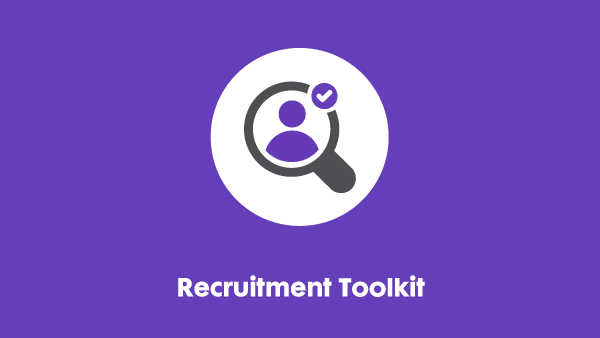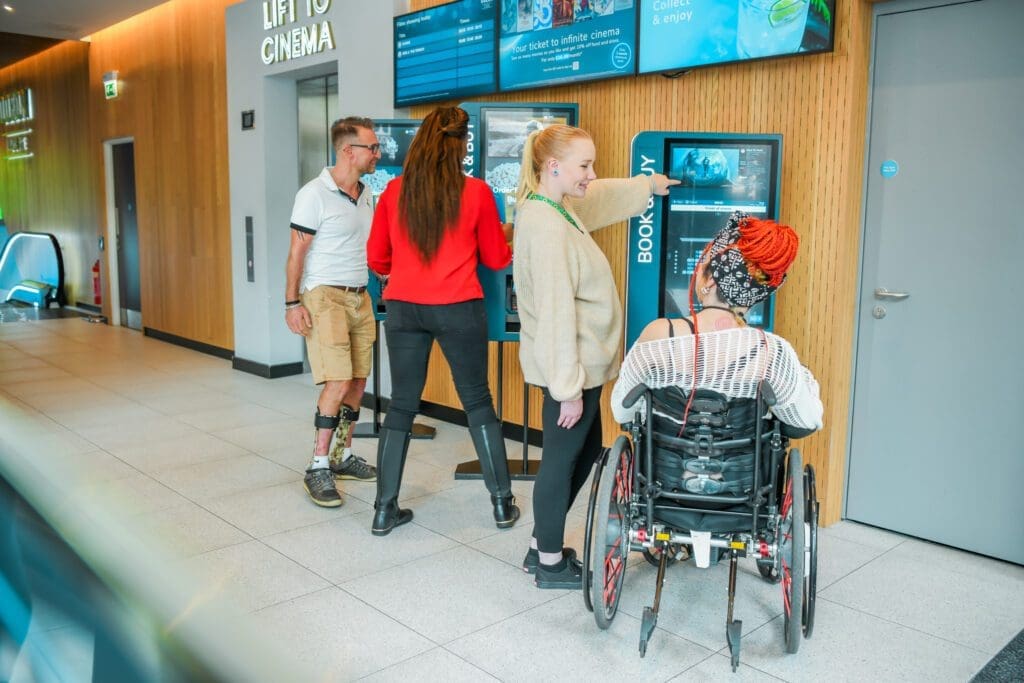Last updated: 11 September 2024
- According to a study by Boston Consulting Group, organisations with more diverse workforces have 19 per cent higher revenues because they are more innovative.
- Hiring more disabled employees can help create more diverse workforces, which are more innovative and productive.
- Being known as an inclusive employer can benefit your brand.
- If you are not trying to recruit disabled people, then you are missing out on a significant talent pool.
The benefits of a diverse workforce
Innovation
In order to be innovative, organisations need diverse teams of people who think differently. A 2015 McKinsey report found that organisations that rank most highly in terms of diversity had financial returns that were on average 35 per cent above the mean for their industry. A separate study has made similar findings – companies with above-average levels of diversity in management report that revenues from innovation make a much higher proportion of their overall revenues when compared with companies with below-average diversity (45 per cent compared with 26 per cent).
The conclusion is clear – organisations with diverse workforces innovate more often and more successfully.
Furthermore, many disabled people have developed ways of living with their disability that make them more innovative thinkers. According to analysis by the Center for Talent Innovation, navigating un-inclusive workplaces and social barriers can hone skills such as agile thinking, diligence, ability to plan and willingness to experiment with new approaches. One US study [PDF] found that 75 per cent of employees with a disability report having an idea that would drive value for their company – compared with 66 per cent of their non-disabled peers.
Disabled employees bring unique experiences and skills that are hugely valuable for innovation.
Inclusive recruitment is one of the keys to creating diverse workforces, allowing your organisation to outperform its competitors. Similarly, organisations who fail to encourage disability inclusion in recruitment risk being left behind their peers who recruit more disabled people into diverse teams.
Inclusion
At this point you may be asking – How can I create diverse teams to allow my organisation to realise these benefits?
The answer is: Inclusion. For recruitment, that means designing policies and practices that remove as many barriers as possible for disabled people who want to bring their skills and knowledge to your organisation and creating an inclusive workplace culture for new starters. Basically, it means asking: How can we make the experience of the recruitment process enjoyable and fair for everyone who applies. Read the rest of this Toolkit for advice about specific steps you can take to achieve this.
Inclusive recruitment has other benefits as well – inclusive recruitment is better for everyone, disabled or not. In fact, as well as welcoming disabled people to work with you, inclusive recruitment practices will make all applicants feel welcomed and supported in their application and as they begin to work with you. This returns benefits such as greater productivity and higher rates of employee retention – more talented candidates join your teams, and fewer of them leave.
Case study – HSBC
Carolanne Minashi, Global Head of Inclusion at HSBC spoke at our 2022 Global Conference about the importance of inclusive recruitment, and how HSBC goes about it.
Brand
Being known as an inclusive employer can boost your brand and return big rewards.
As recruitment is one of the key ways members of the public engage with your brand, focusing on inclusive recruitment can make your organisation’s brand stand out among the crowd.
Conversely, a brand that positions itself as inclusive will struggle to succeed if disabled applicants and candidates are finding that the right words have not led to the right actions being taken in its recruitment practices.
Experiences during recruitment – positive and negative – will affect how your brand is perceived. The worst examples of un-inclusive recruitment can even lead to legal problems – a sure-fire way to tarnish a brand.
If your organisation wants to make sure inclusion is a core part of its brand, you cannot ignore the importance of inclusive recruitment.
Productivity
Recruiting a diverse workforce also leads to productivity gains. One study at a US manufacturing firm found that teams with more disabled people were proportionately more productive.
One of the reasons for this is that disabled people make up a large proportion of the population – one fifth of the world’s population. Therefore, by using inclusive recruitment policies and practices, employers are opening up a large pool of relatively untapped talent – many of whom may just be the perfect person for the role.
Another reason is that employees hired through inclusive recruitment processes are more likely to value their job and employer, and therefore are more likely to be more productive.
Finally, inclusive recruitment means treating people as individuals with unique ways of working – and adapting ways of working to suit an individual means they have to work less hard to achieve the same outputs.
School’s Out – Why it matters
Claire Cookson of DFN Project Search spoke at our 2023 Annual Conference to explain her organisation’s work matching disabled school leavers with employment opportunities – and how employers have benefitted from a more diverse workforce.
And if you are unsure whether recruiting more disabled people is suitable for your sector, Claire Cookson goes on to explain why every sector can benefit.
Finally, Vivienne Monk gave an example of the programme working in practice. She shared the story of a young man with a learning disability who started working at St Bartholomew’s Hospital.
Compliance
Finally, organisations are open to legal challenges if they do not meet requirements to remove barriers for disabled applicants and candidates. Many countries have strong legal protections for disabled people looking for a job, and failure to meet legal obligations can incur financial penalties and damage reputations.
Moreover, as laws change and provide greater protection for disabled applicants and candidates, businesses can find it costly and time-consuming to redesign recruitment practices and policies to meet new requirements. Working on inclusive recruitment now can save you from costly retrofitting later.
If you require this content in a different format, contact enquiries@businessdisabilityforum.org.uk.
© This resource and the information contained therein are subject to copyright and remain the property of the Business Disability Forum. They are for reference only and must not be copied or distributed without prior permission.

